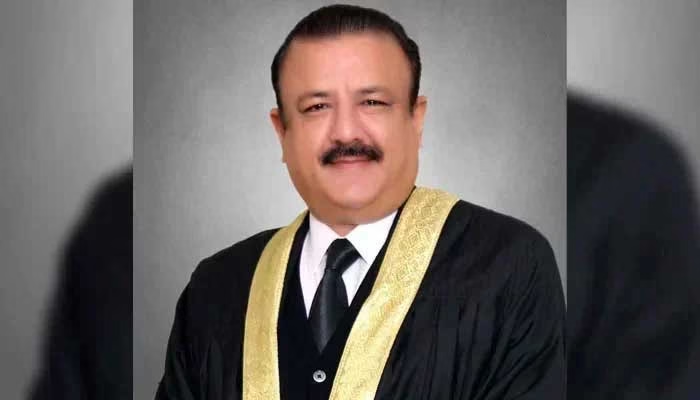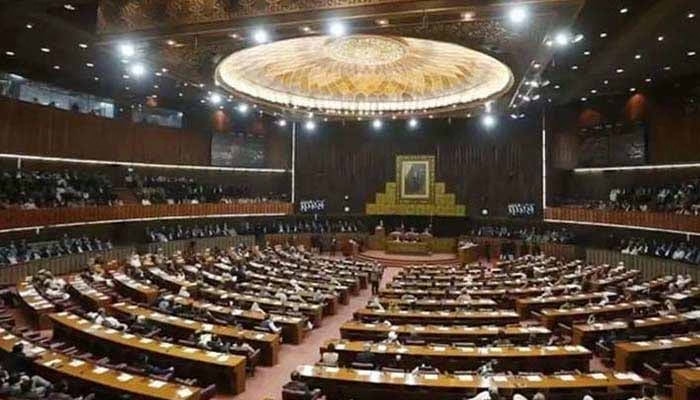The legal fraternity in Pakistan has been closely following the developments surrounding the academic credentials of Islamabad High Court judge Justice Tariq Mehmood Jahangiri. In a significant move, the Sindh High Court suspended Karachi University’s cancellation of Justice Tariq Mehmood Jahangiri’s law degree, providing temporary relief to the IHC judge. The decision comes amid growing debates about judicial independence, administrative authority, and the credibility of academic institutions.
Background of the Controversy
The controversy began when the University of Karachi cancelled Justice Tariq Mehmood Jahangiri’s law degree through a notification dated September 25, 2024. The university cited recommendations of its Unfair Means Committee (UFM), which alleged that Justice Jahangiri was guilty of using unfair means in his academic record dating back to 1989. The decision also barred him from seeking admission or appearing in examinations at any university for three years.
However, Justice Jahangiri contested the decision, arguing that the notification was unlawful and damaging to his judicial role. The matter escalated when a division bench of the Islamabad High Court barred him from performing his judicial duties on September 16, intensifying the controversy.
Sindh High Court Suspends Karachi University’s Cancellation of Justice Tariq Mehmood Jahangiri’s Law Degree
On Friday, the Sindh High Court (SHC) intervened, suspending the University of Karachi’s notification. The SHC bench, comprising Justice Muhammad Iqbal Kalhoro and Justice Mohammad Abdur Rahman, restrained the university from taking further action against the judge until a reply is filed.
During the hearing, University of Karachi Registrar Professor Imran Siddiqui sought more time to respond, noting that the institution had received the court’s notice only two days earlier. Accepting the request, the SHC adjourned proceedings, but not before granting temporary relief to Justice Jahangiri by halting the implementation of the contested notification.
Parallel Proceedings in the Supreme Court
The case has also reached the Supreme Court of Pakistan. On September 29, the apex court suspended the Islamabad High Court’s order that had barred Justice Jahangiri from judicial work. A five-member constitutional bench, headed by Justice Amin-ud-Din Khan, issued notices to the attorney general’s office and other relevant parties, underscoring the seriousness of the matter.
The Supreme Court’s intervention highlights the broader implications of the controversy, especially in relation to the separation of administrative and judicial powers. Justice Mohsin Akhtar Kiyani and four other IHC judges also approached the apex court, arguing that administrative authority should not override judicial independence.
Key Legal and Institutional Questions
The Sindh High Court’s suspension of Karachi University’s cancellation of Justice Tariq Mehmood Jahangiri’s law degree raises several key questions:
- Academic Integrity vs. Judicial Independence: Should allegations from decades-old academic records impact a sitting high court judge’s ability to serve?
- Authority of Academic Institutions: How much power should universities have in reviewing and nullifying credentials of professionals long after they have entered public service?
- Administrative Powers within Judiciary: The petitions filed by Justice Kiyani and others stress the need to clarify boundaries between administrative authority and judicial functions.
Wider Implications for Pakistan’s Judiciary
This controversy arrives at a time when Pakistan’s judiciary is under scrutiny for both its transparency and independence. The suspension of Justice Jahangiri’s judicial duties by the IHC, followed by the Supreme Court’s reversal, demonstrates the ongoing tension between different tiers of the judiciary.
Moreover, the fact that a judge’s decades-old degree is now at the center of legal challenges highlights gaps in oversight mechanisms within both academic and judicial institutions. According to the Higher Education Commission of Pakistan, over 200 cases of degree verification disputes were recorded in 2023, reflecting the scale of challenges in ensuring academic authenticity.
What Lies Ahead
The Sindh High Court’s suspension of Karachi University’s cancellation of Justice Tariq Mehmood Jahangiri’s law degree is only an interim measure. The case is set to continue, with the SHC directing the University of Karachi to file its reply. At the same time, the Supreme Court’s proceedings will shape the larger constitutional questions tied to this matter.
The outcome of these hearings will not only determine the professional future of Justice Jahangiri but also set precedents on the role of academic institutions in revisiting old records and the boundaries of judicial independence in Pakistan.
For now, Justice Tariq Mehmood Jahangiri has secured temporary relief as the Sindh High Court suspended Karachi University’s cancellation of his law degree. However, the ongoing proceedings at multiple judicial levels underscore the complexity of the case. This episode will likely influence future debates on academic integrity, institutional authority, and judicial independence in Pakistan.



